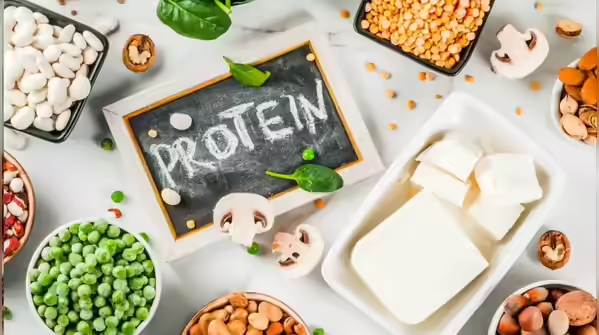

100 g protein every day: Goa fitness coach recommends top 5 vegetarian and 4 non-veg food options to meet your daily protein goal
In a world full of wellness routines and rituals, “protein intake” often takes a front row seat. Whether it’s through everyday food or with the help of supplements and wildly popular protein shakes, one must reach the milestone for daily protein intake. Why? Protein is crucial for muscle growth because it provides the building blocks (amino acids) necessary to repair and rebuild muscle tissue damaged during exercise. Moreover, adequate protein intake, especially when combined with resistance training, helps increase muscle mass and strength.
But how to — safely and effectively — reach your daily protein intake goal?
Fitness enthusiasts claim, it’s possible to do so even without spending hours in the kitchen or endlessly snacking on shakes. How?
According to Dharma Kumar — a Goa-based fitness coach also known as “Beardholic” — reaching 100 grams of protein every day isn’t a complicated task. His mantra of daily protein intake is quite straightforward and pretty inclusive: pick four protein-rich foods (~25 g each) every day, and you’re there. And you don’t have to worry, even if you don’t want to indulge in animal protein — as per him, vegetarians, too, can hit the target with plant-based choices.
Curious about his top picks?
Top 5 vegetarian options
Here are five standout vegetarian picks that Dharma recommends — each one roughly 25 g of protein (or close) and easy to fit in.
Soya chunks (50 g dry): about 25 g protein
Soya chunks are an excellent source of plant protein, with about 52 g of protein per 100 g. This makes them a very popular and protein-rich meat alternative for vegetarians, vegans, and anyone who’s looking to up their protein intake.
Why it works: Legumes or soy items also bring fiber, iron, and often low-fat, which is good for satiety and contributes to muscle building as well.
Skyr (250 g): about 27 g protein
Skyr is a cultured dairy product — a thick, creamy Icelandic dairy product, similar to a very thick yogurt or a soft, low-fat cheese, that is made from skim milk. Dharma lists 250 g, which is nearly 27 g of protein.
Why it’s great: Dairy-based proteins provide “complete proteins” (all essential amino acids) and also boost calcium and gut health via probiotics.
Whey protein (1 scoop): about 24 g protein
Whey protein is a premium protein derived from cows milk, rich in beneficial amino acids. For vegetarians (not vegan eaters), whey provides a quick high-protein fix.
Why it works: Whey is fast-absorbing and is especially great post-workout. But food-based proteins are still valuable for whole-food nutrients.
Low-fat paneer (100 g): about 25 g protein
Low-fat paneer is a healthy dairy product made from skimmed or toned milk rather than full-fat milk, resulting in significantly reduced fat and calorie content. Dharma’s list shows nearly 25 g from 100 g.
Why it’s great: Paneer provides protein, also brings calcium to the table. You can pair it with veggies for fiber and micronutrients.
empeh (140 g): about 25 g protein
Tempeh is a traditional Indonesian food made from fermented soybeans, pressed into a firm, cake-like block. As per Dharma, 140 g of tempeh has nearly 25 g of protein.
Why it works: Fermented soy, like tempeh, offers not just protein but also gut‐friendly by-products and better digestibility for some.
For clarifications/queries, please contact Public Talk of India at:
+91-98119 03979 publictalkofindia@gmail.com

For clarifications/queries,
please contact Public Talk of India at:

